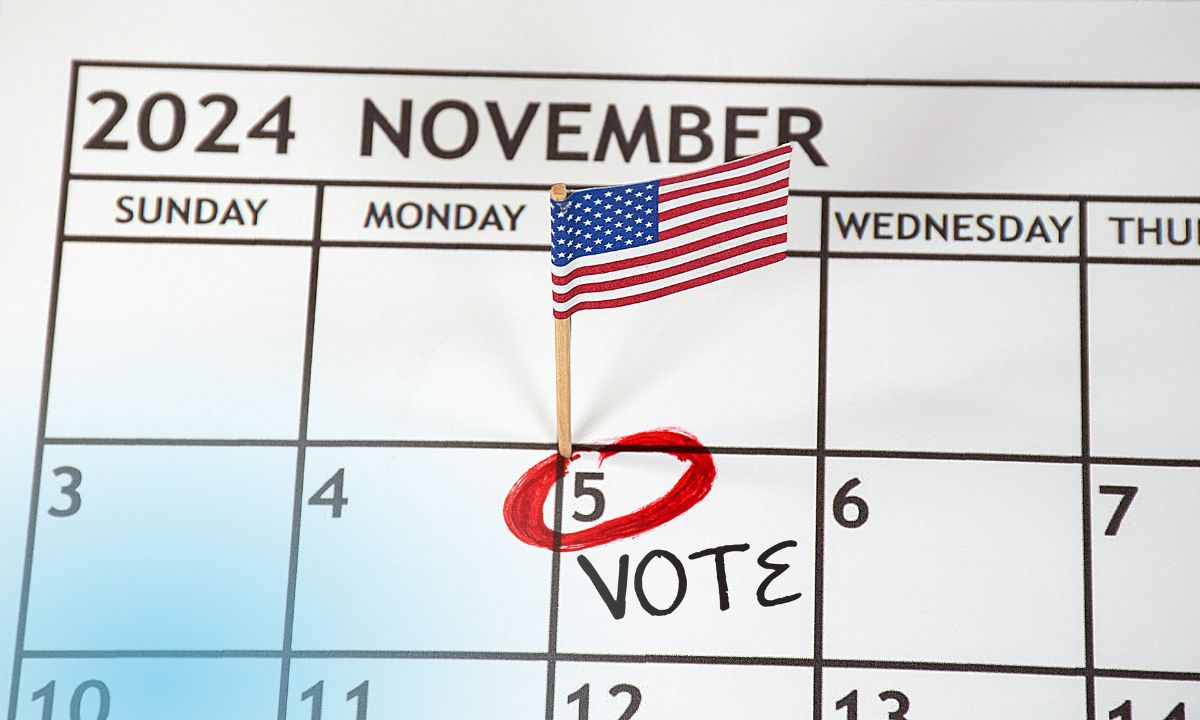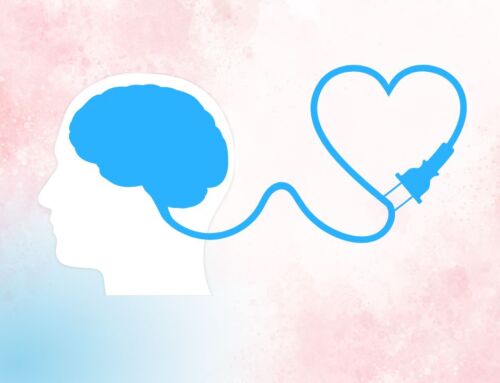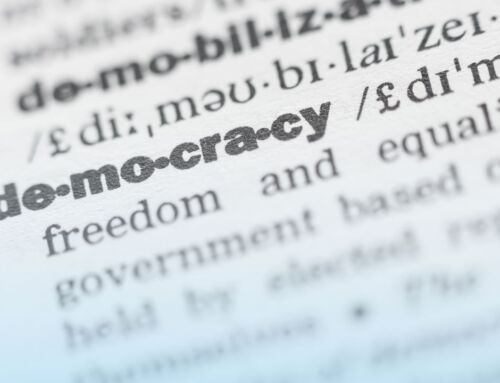A few months ago, I wrote about how our nation’s incredibly divisive political environment is harming our mental health. As I said then and many times before, we are not designed to live in a constant state of fear, worry, and stress. Chronic stress takes a toll on our hearts, minds, and bodies, robbing us of the joy we should experience in the only life we have.
As November 2024 arrives, we Americans are feeling worried, stressed, and on edge over what will happen in Tuesday’s presidential election, and the possibility for more violence and upheaval when the ballots are counted.
No matter the final outcome, roughly 50% of the country is likely to be very unhappy with the result. If current polling is any indication, it may be weeks before we know whether Vice President Kamala Harris or former President Donald Trump takes office. Unless the polls are way off, and the outcome is decisive, we may be facing weeks or months of recounts, legal challenges, and conspiracy theories before the outcome is settled. For some it may never be settled, as we saw in the Jan. 6, 2021 insurrection and its continuing aftermath of election denial.
For most of America’s history, elections were where we came together and agreed to disagree. If your candidate lost, there was always the next election. Good sportsmanship, conceding defeat gracefully, and the peaceful transition of power are bedrock values that have been tossed aside since Trump convinced his minions that any election he loses is rigged, despite all evidence to the contrary.
As I sit here a week before the election and write these words, I feel all that uncertainty bearing down. It’s too much for one person to bear, let alone an entire nation in turmoil.
This is a time for me to practice what I preach, to breathe deeply, take in the good, practice gratitude, and use SNAP to restore my equilibrium and equanimity.
I wrote my book “SNAP! From Chaos to Calm,” when we were in the middle of the pandemic to help people better cope with the difficult emotions we all face in life. We are sure going through some of those now, individually and as a nation. So I’d like to revisit a bit of the chapter “SNAP for Political Strife and Disaster” here:
Telling someone to “let it go” isn’t going to work. They need a toolkit to manage anger — some needle-nose pliers to pull out the jagged bits. Here is my toolkit, practiced over many years on anger and even sometimes on rage. It starts with the three things I put on my website in 2014 — intention, attention, and attitude.
Intention: We need to set the intention to let it go. Sometimes we hang onto anger because our righteous indignation gives us something that we need. However justified we might be in our anger, we need to let it go — which is not telling yourself that everything is all right or that the object of the hatred is suddenly a saint, but rather that the situation is what it is, and you’re not carrying the weight of it anymore. I’m not allowing real estate in my heart to be taken up by toxic waste. If I want to be part of the change I want to see in the world, I need to lighten up my load so I can be an effective advocate for change.
Attention: I’m going to concentrate my attention on specific tools that will help me manage difficult emotions. When I notice anger coming up, I will pause. I might take a few moments to rest my attention on my breath. I can move my attention around, because the gift of meditation practice is that I know how to shift my awareness from thing to thing. I might notice how my body feels. I can put my attention on where my body is contacting anything in the environment. I might take a listen to sounds in the environment and note the temperature in the space and what colors my eyes see in the moment. All these objects of my attention take my attention away from the feelings of anger. This stops the ruminating anger that runs in a discursive loop, circling the drain with your body in tow!
Attitude: I intend to love myself, to treat myself as my dearest friend, and to allow myself to rest, as the poet Jane O’Shea describes, “in the hammock of my heart.” Then if I still feel activated, I will run through SNAP.
SNAP is an acronym to help you remember the practice, paraphrased here:
S
Soothing touch
When you feel upset, triggered, or filled with worry or dread, place your hands where you find it soothing. This could be placing your hands on your heart, your belly, cheeks, upper arms in a hug, or hands holding hands. Use whatever placement comforts you most. Allow the release of oxytocin and endorphins to calm your nervous system.
N
Name the emotion
It may be anger, outrage, fear, sadness, hopelessness, etc. Whatever it is, putting it into words will help you calm down.
A
Act
There are two questions in the ACT step:
1.What do I need to hear right now?
Whatever the answer, say it to yourself. If it’s fear, you can notice that you are technically safe, if that’s true. No one is chasing you. You have a roof over your head. If it’s anger, I say, “Julie, sweetheart, this anger is only hurting you. It’s so tough to feel this way. And by the way, honey, you are not alone. Our country is being shredded to smithereens by hatred.” You are allowing the emotion to be there, to feel into it, not run and hide or numb it.
2. What do I need to do right now to shift my mood?
I intentionally change the channel, not to bypass the crap but to take back my power. I recommend creating a “joy list” for this practice, so when you are new to the idea, you don’t have to remember what brings you joy. Eventually, it will be automatic. I know that a bath helps me, so if I’m somewhere with a bathtub, that’s a “go to” for me. I might phone a friend. I might get outside in nature or move my body. You get the idea.
P
Praise
I thank my practice for giving me the tools and the power to pull myself together. I thank my teachers for showing me the path. I might thank the universe. If you are a religious person, the Praise step is the time to thank your deity. This praising piece allows gratitude in, and gratitude is good medicine.
No matter your politics or whom you support for president, I hope these words help you in the days and weeks to come, as we walk through this time of uncertainty together. Let’s love ourselves up so much we can have love spilling over for others. It helps to remember that just like me, these people want to belong. Just like me, these people want to be safe and free from suffering.




















